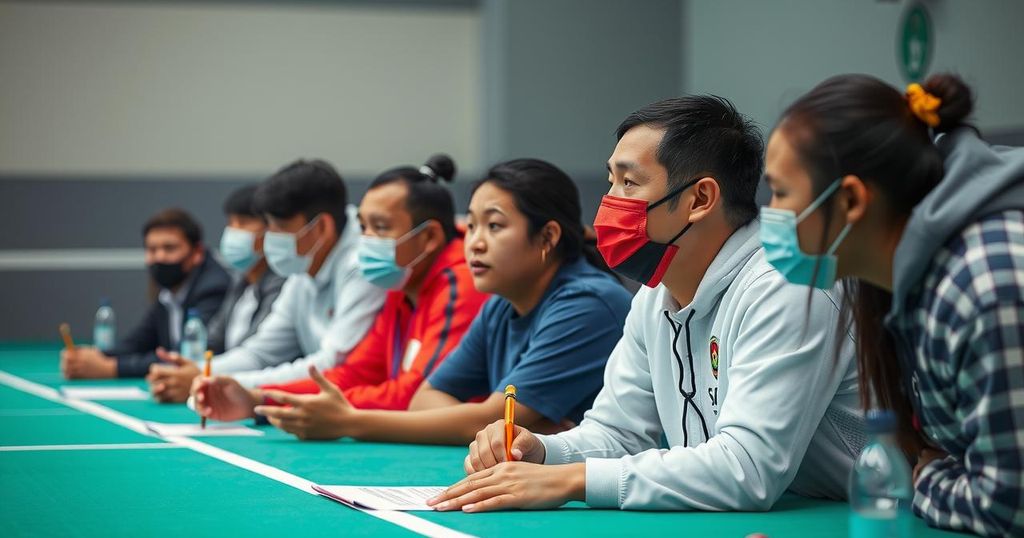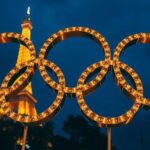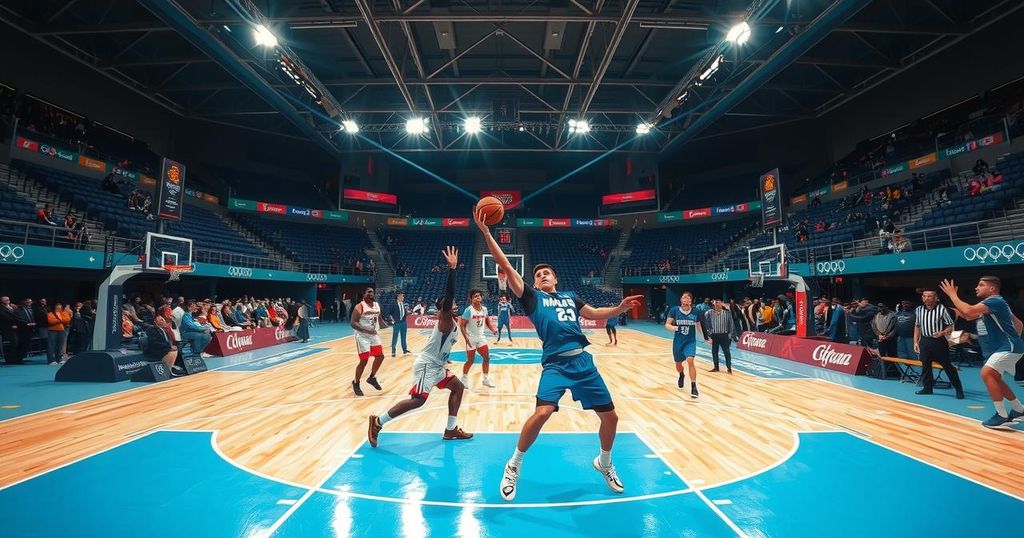Over 6,000 Athletes Participate in IOC Anti-Corruption Education Initiatives at Paris and Gangwon 2024
During the Paris 2024 and Gangwon 2024 events, over 6,000 athletes participated in anti-corruption education programs aimed at preventing competition manipulation. The IOC emphasized continuous learning and support from athlete ambassadors, focusing on raising awareness of risks and the importance of integrity in sports.
In 2024, over 6,000 athletes participated in anti-corruption education initiatives during the Paris 2024 Olympic Games and the Gangwon 2024 Youth Olympic Games. This initiative, announced by the International Olympic Committee (IOC) on International Anti-Corruption Day, aimed to educate athletes about the dangers of competition manipulation. Young athletes are particularly susceptible to such threats; thus, the IOC implemented the most comprehensive educational program to date, focusing on raising awareness of these risks through various engaging activities.
During the Paris 2024 Games, approximately 4,000 athletes frequented the “Believe in Sport” booth located within the Athlete365 House. The booth offered interactive scenarios and encouraged athletes to report any manipulation suspicions via the IOC Integrity Hotline. Shane O’Donoghue from Ireland emphasized the importance of ongoing education on competition manipulation, highlighting how familiarization with such topics helps athletes remain vigilant.
Athlete ambassadors played an essential role in this campaign, with Olympian Nina Kanto advocating for athlete education on integrity issues. Her insights underscored the necessity for young athletes to understand competition rules and manage their careers responsibly. Meanwhile, at the Gangwon 2024 Youth Olympic Games, over 2,000 athletes participated in sessions designed to empower them through knowledge and support from both athlete ambassadors and IOC Young Leaders.
Olympian Andrej Miklavc addressed the prevalence of online betting and its implications for athletes, underlining the importance of awareness to avoid becoming victims or instruments for those wishing to exploit vulnerabilities in the sporting community.
The IOC’s commitment to combating corruption extends beyond major events. As a co-founder of the International Partnership Against Corruption in Sport (IPACS), the IOC collaborates with various international entities to promote good governance through educational initiatives and workshops. These efforts aim to equip sports organizations with the knowledge necessary to prevent and investigate competition manipulation systematically.
The increasing threat of competition manipulation in sports has prompted governing bodies to implement educational programs aimed at safeguarding the integrity of competitions. The IOC recognized that young athletes are especially vulnerable to the pressures and risks associated with corruption, which can manifest in various forms, including match-fixing and insider trading. To combat these issues, the IOC developed proactive initiatives to educate athletes about the dangers and the importance of reporting suspicious activities.
In summary, the IOC’s launch of anti-corruption educational programs during the Gangwon 2024 and Paris 2024 events marks a significant step towards safeguarding the integrity of sports. With over 6,000 athletes participating, the emphasis on awareness and proactive measures signals a proactive approach to combating corruption in sport. Continuous education and the engagement of athlete ambassadors underline the IOC’s commitment to equipping athletes with vital knowledge to protect themselves and the integrity of their competitions.
Original Source: olympics.com








Post Comment